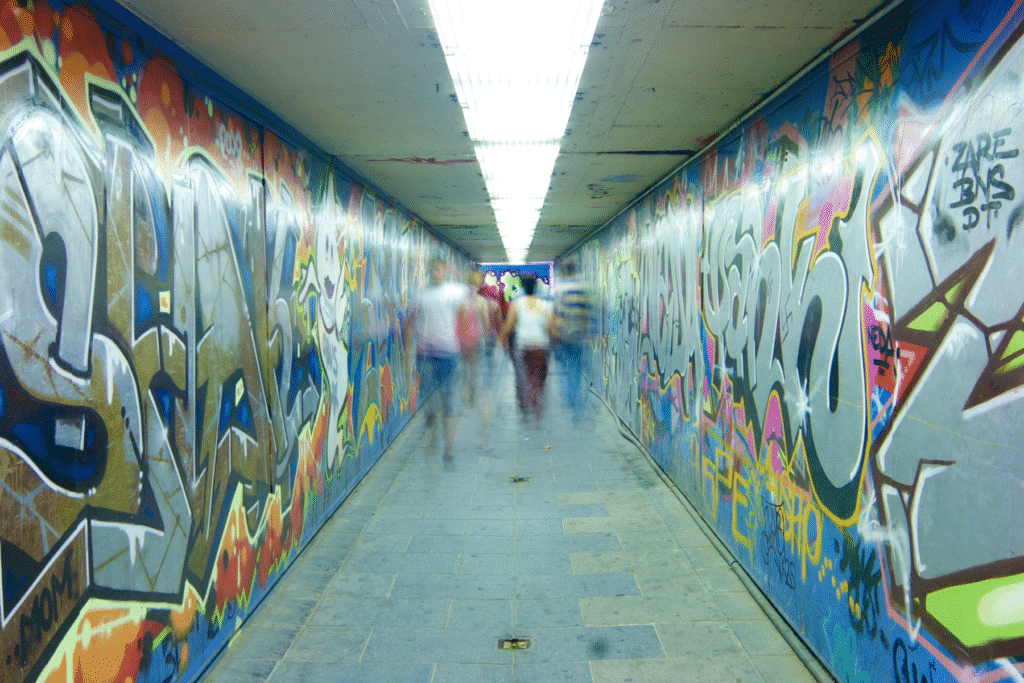What You Need to Know
Graffiti may be seen by some as street art—but under Arizona law, it’s a serious criminal offense that can carry lasting legal consequences. If you or a loved one has been accused of graffiti, vandalism, or tagging property in Arizona, it’s important to understand the state’s laws and how they may impact your record, freedom, and future.
What Is Considered Graffiti Under Arizona Law?
Arizona does not have a standalone statute titled “graffiti,” but graffiti-related offenses fall under criminal damage laws, primarily A.R.S. § 13-1602. This statute defines criminal damage as intentionally or recklessly:
- Defacing or damaging property belonging to another person
- Tampering with property in a way that substantially impairs its function or value
- Drawing or inscribing a message, slogan, sign, or symbol on public or private property without permission
In essence, graffiti—whether painted on a freeway wall or etched into a bus stop bench—is prosecuted as criminal damage.
Penalties for Graffiti in Arizona
The severity of a graffiti charge in Arizona depends on the monetary amount of damage caused:
- Less than $250: Class 2 misdemeanor
- $250–$1,000: Class 1 misdemeanor
- $1,000–$2,000: Class 6 felony
- $2,000–$10,000: Class 5 felony
- Over $10,000 or involving a utility: Class 4 felony
Convictions can result in jail time, fines, community service, restitution, and a permanent criminal record. Juvenile offenders may also face consequences such as driver’s license suspension and court-ordered graffiti removal.
School Zones and Gang-Related Tagging
Arizona enforces enhanced penalties for graffiti near schools or when it’s considered gang-related. Under A.R.S. § 13-708, gang-related criminal damage can trigger sentencing enhancements, even for first-time offenders.
Tagging that involves gang symbols or occurs in school zones may result in increased felony charges, mandatory community service, or supervised probation.
Juvenile Offenders and Graffiti Charges
At Rideout Law Group, we frequently represent minors facing criminal damage charges for graffiti. Arizona courts do allow for rehabilitative measures in juvenile cases, including diversion programs, restitution, and record sealing options under A.R.S. § 13-911 for expungement.
Parents and guardians should act quickly to protect their child’s record. Our juvenile defense attorneys are experienced in securing favorable outcomes in graffiti-related cases.
Defending Against a Graffiti Charge
Being accused of graffiti doesn’t automatically lead to a conviction. Common defenses may include:
- Lack of intent to damage property
- Mistaken identity (especially in group incidents)
- Consent from the property owner
- Insufficient evidence (e.g., no witnesses or surveillance footage)
At Rideout Law Group, we investigate the facts, challenge the prosecution’s case, and work to reduce or dismiss charges through plea negotiations, diversion, or trial.
Get Legal Help for Graffiti Charges in Arizona
Whether you’re a parent of a teenager facing a criminal citation or an adult accused of tagging property, don’t navigate Arizona’s criminal justice system alone. The penalties are steep—but with experienced legal counsel, you have options.
Our criminal defense attorneys at Rideout Law Group serve clients throughout Scottsdale, Lake Havasu City, Phoenix, and surrounding areas. We offer free consultations and aggressive representation for criminal damage cases of all levels.
📲 Contact Rideout Law Group Today
Scottsdale Office
📍 11111 N Scottsdale Rd, Suite 225, Scottsdale, AZ 85254
📞 (480) 584-3328
This blog post is for informational purposes only and does not constitute legal advice. Reading this content does not create an attorney-client relationship. For legal guidance specific to your situation, please contact a licensed attorney at Rideout Law Group.

